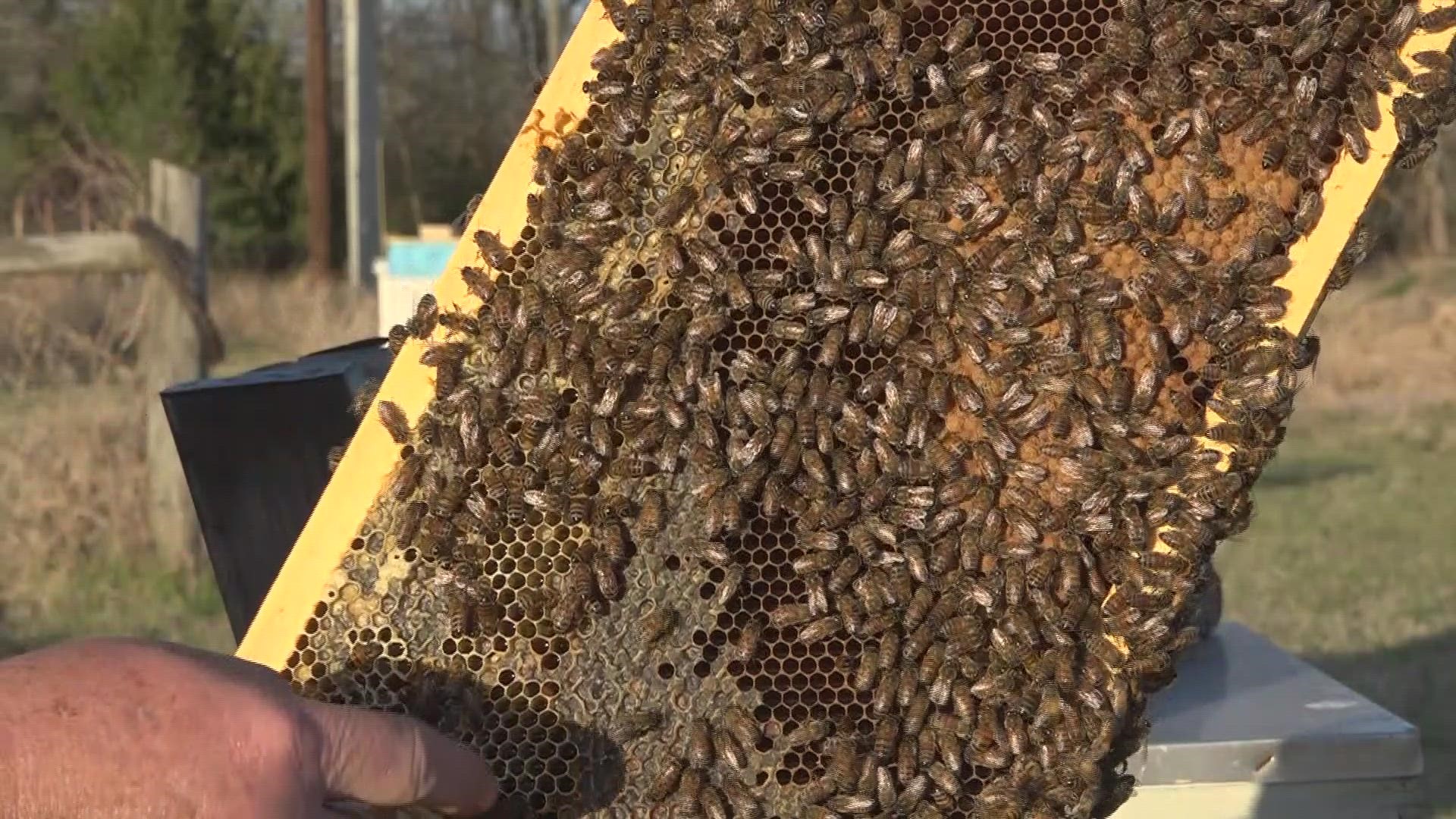INDIANAPOLIS — It’s bee swarm season! May to June is when bees are more likely to swarm and, according to the Indiana Department of Natural Resources, this tends to happen when beekeeper’s hives get overcrowded or queens run out of space to lay eggs.
Colonies can house about 60,000 bees. If some start swarming near you – what should you do?
When bees swarm, the queen may off with some of the population to start a new colony. In most cases, if you see a bee swarm, it’s best to wait it out. The bees will likely move to a new home on their own.
We experienced that right here at the WTHR studios! The swarm flew off by the time our crews - and responding beekeeper - could arrive on scene.


“It's nothing to be scared of...nothing to want to poison, either. Just, if you see a cluster of bees, find your beekeeper. We're all over the place,” beekeeper Ben Wrin said.
Wrin said he has helped with six swarms so far this season, and that it is crucial to try and stay calm if you see bees swarming. Wrin travels with his own beekeeping equipment in case he gets a call, and bets there’s “one hundred other people” in Indiana searching for swarms.
“I can give them a nice home, let them live out in the country somewhere or even in the neighborhoods just fine too. But it's very sad to just see them die. They're not that dangerous,” Wrin said.
Beekeepers tend to gently shake the bees into a cardboard box and relocate them. The professionals are trained in how to handle them so, Wrin said, there is no reason to poison them or try to remove them yourself.
“Within a couple of days, they'll go find somewhere to live. They're either going to find the family that they came from, or the family that left, or they could perhaps negotiate their way into some other beehive,” Wrin said.
In recent years, a more concerted effort has been made to save bees as they continue to face disruption and eradication from climate change. The honey bee population decreased 40% in the winter of 2018 and 2019 alone, according to the Bee Informed Partnership, a nonprofit associated with the University of Maryland.
Given the threat bees face, Wrin said it is more important to think of ways we can help support those populations as they reproduce this season.
“Just plant ordinary plants with flowers. Ease up on the pesticides. You know, consider a flowering bush instead of a lawn. That's the sort of thing that would help the bee population,” Wrin said.

